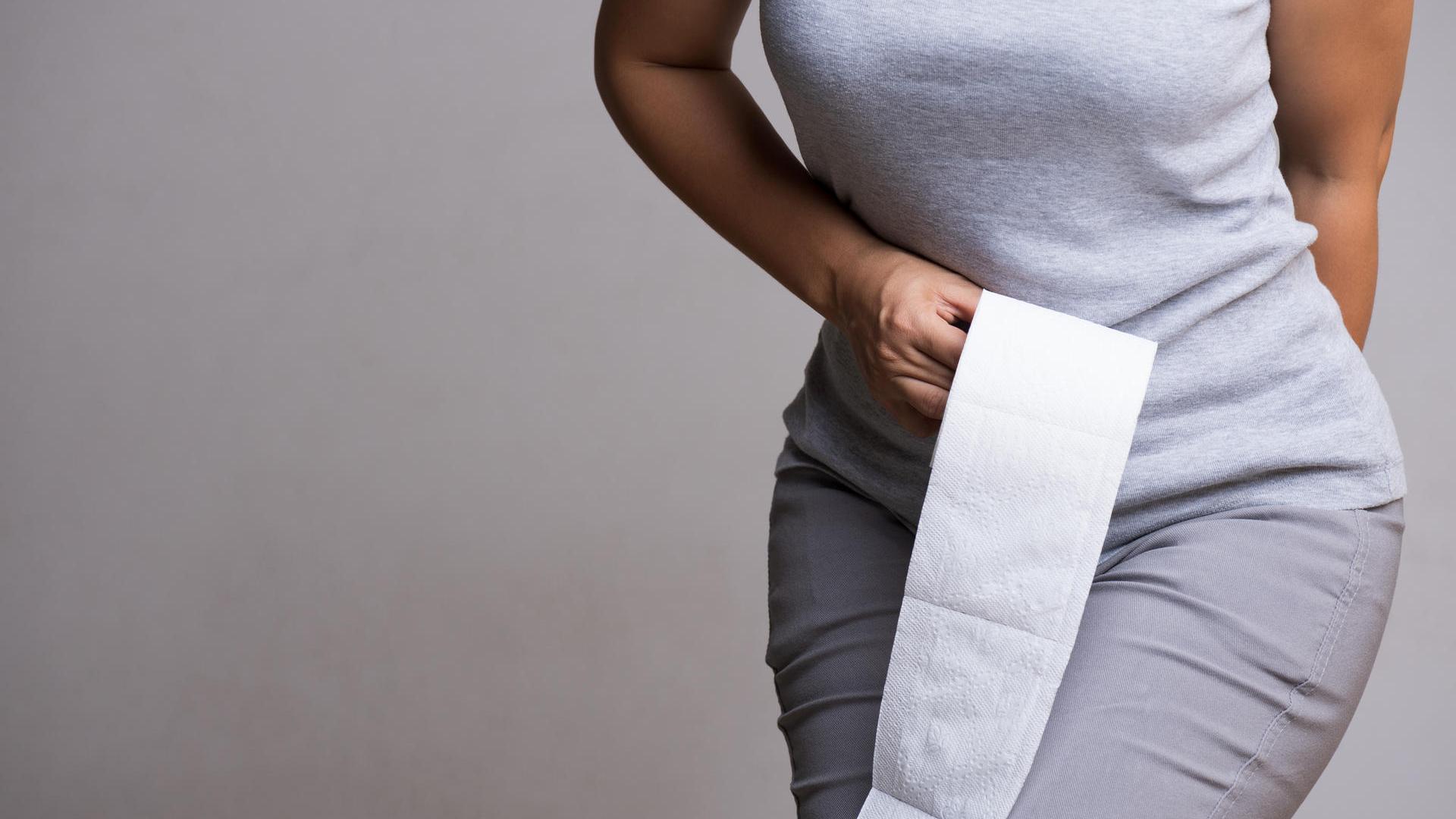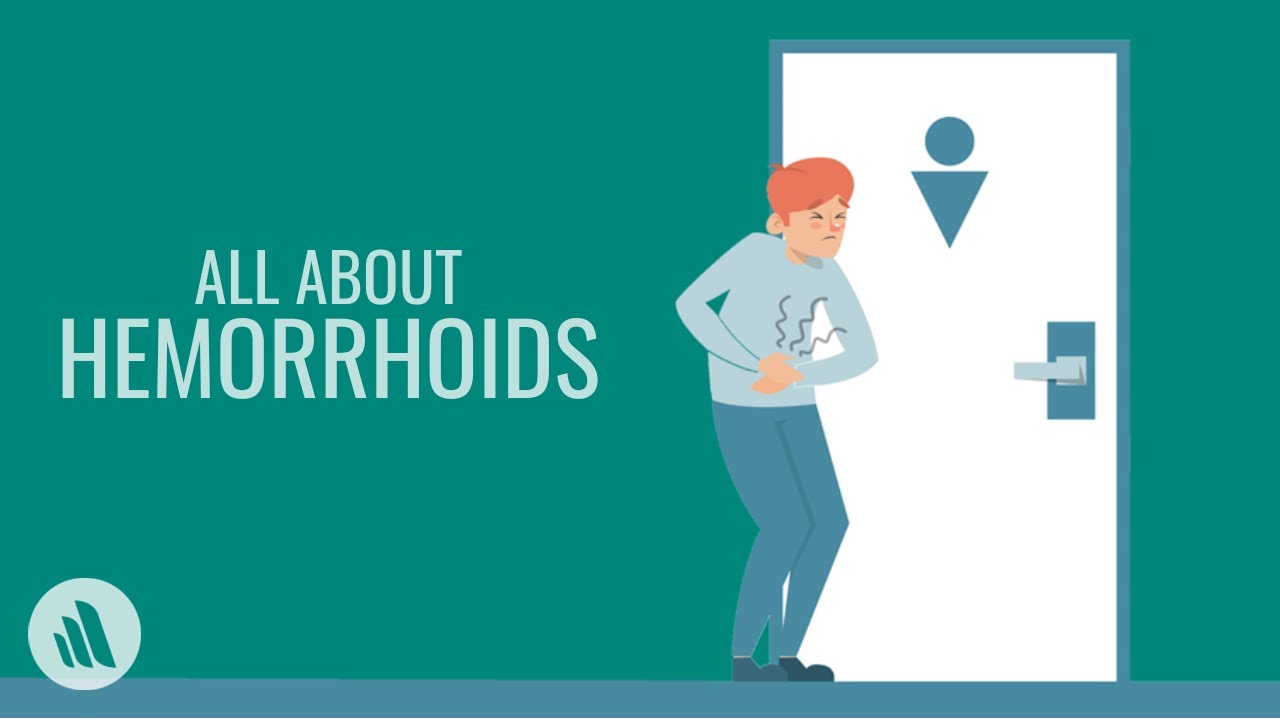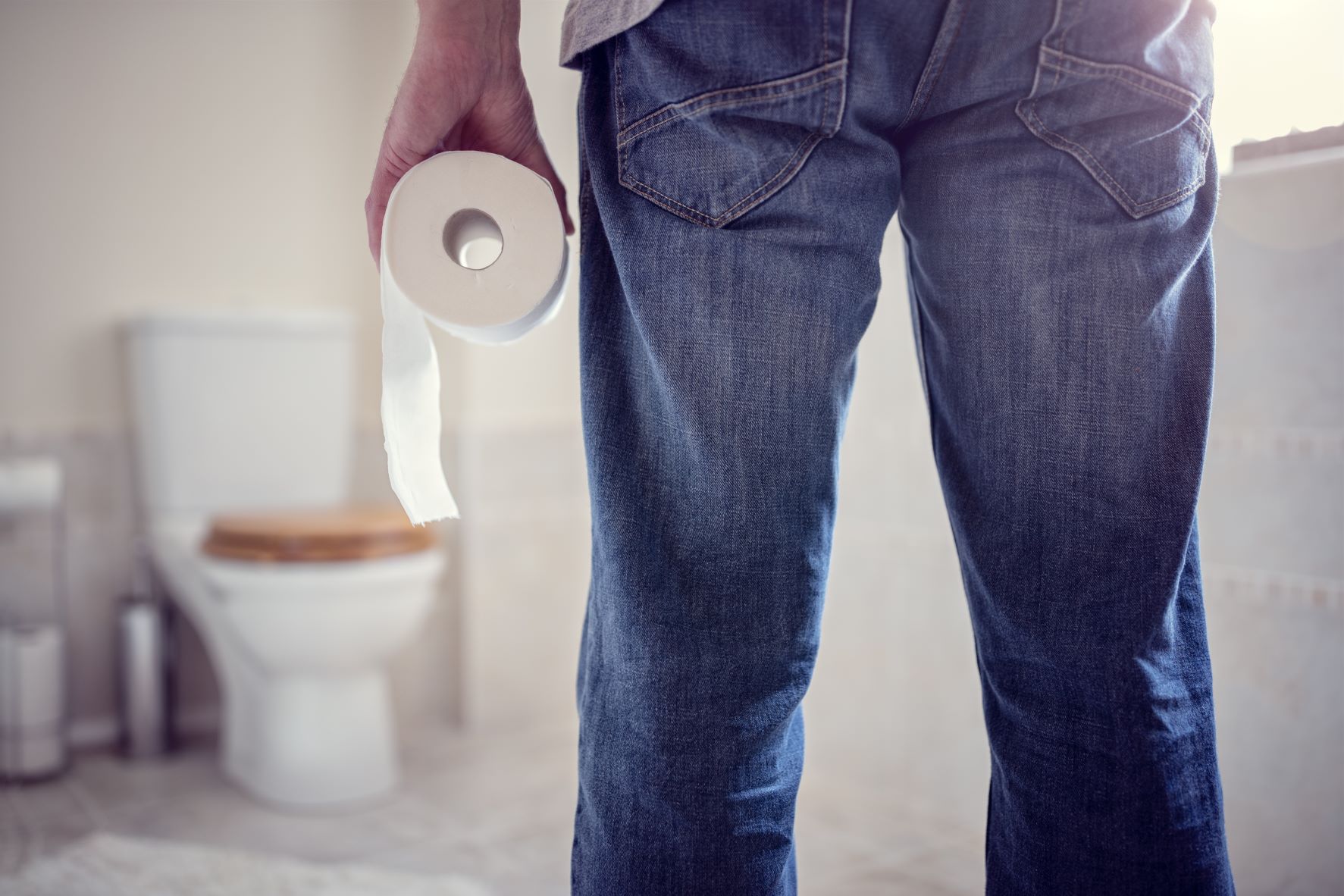Hemorrhoids - Definition And Methods To Avoid It
Hemorrhoids are a serious health problem that must be dealt with. Hemorrhoids can be anywhere from a little uncomfortable to unbearably painful, and they can make every part of your life harder and more embarrassing. They are some of the most common reasons for anorectal problems, so both patients and doctors blame them for almost all anorectal problems.
Author:Katharine TateReviewer:Karan EmeryAug 13, 202243 Shares685 Views

Hemorrhoids are a serious health problem that must be dealt with.
Hemorrhoids can be anywhere from a little uncomfortable to unbearably painful, and they can make every part of your life harder and more embarrassing.
They are some of the most common reasons for anorectal problems, so both patients and doctors blame them for almost all anorectal problems.
Because the term "hemorrhoid" has been used to refer to both normal anatomic structures and pathologic ones, it is common for people to become confused about its meaning.
In the context of this article, the term "hemorrhoids" refers to the diseased state of hemorrhoidal venous cushions.
Hemorrhoidal venous cushions are natural parts of the anorectum. They are there even if the anorectum has never been operated on or changed in any way.
What Are Hemorrhoids?
Hemorrhoids are bulging veins that can be found around the anus or in the lower rectum.
They have a form similar to varicose veins and are commonly referred to as "piles."
However, they can appear as internal (inside the rectum) or external hemorrhoids.
By the age of 50, approximately half of all adults suffer from hemorrhoids.
They are often so small that they are barely apparent. In other situations, though, they can be enormous, painful, and disruptive to your daily life.
Internal or external hemorrhoids can occur. Internal hemorrhoids form inside the anus or rectum.
External hemorrhoids form outside the anus.
External hemorrhoids are the most common and inconvenient.
Hemorrhoids can cause extreme itching, pain, and trouble sitting.
Fortunately, they are curable.
These enlarged veins can appear without warning and with no obvious underlying cause.
But here's the good news: there are many preventive methods that can help you avoid hemorrhoids or make them less painful.

Hemorrhoids: Symptoms, Causes, Treatment, and Prevention | Merck Manual Consumer Version
What Are The Symptoms Of A Hemorrhoid?
In most cases, the signs and symptoms of hemorrhoids are determined by the specific type of hemorrhoid that is present.
External Hemorrhoids
These are located just below the surface of the skin around your anus. Possible signs and symptoms include the following:
- Bleeding
- Inflammation surrounding the area of your anus
- Discomfort or pain
- Itching or irritation in the anal region
Internal Hemorrhoids
Hemorrhoids found inside the rectum are referred to as "internal hemorrhoids." They are typically unable to be seen or felt, and they rarely result in any kind of discomfort. However, when passing stool, straining or irritation might cause the following:
- A hemorrhoid that has prolapsed or protruded through the anal orifice causes pain and irritation. This condition is also known as a prolapsed hemorrhoid.
- A bleeding that is not painful and occurs with bowel movements. It's possible that you'll see a few little spots of bright reddish blood on your toilet paper or in the bowl of the toilet.
Thrombosed Hemorrhoids
If blood forms a clot (thrombus) in an external hemorrhoid, the following things could happen:
- A hard lump close to your anus
- Inflammation
- Swelling
- Severe pain
Often, hemorrhoids don't hurt. However, external hemorrhoids can occasionally cause a blood clot to grow on the skin.
A thrombosed hemorrhoid is what this condition is. Hemorrhoids inside the body can also prolapse. Therefore, they won't close themselves off inside the anus.
Hemorrhoids that have prolapsed or that have thrombosed can be quite painful.
Hemorrhoids are not life-threatening and frequently go away on their own without treatment, despite the fact that they can be very unpleasant.
Whenever you experience bleeding or black stools, see your doctor.
Bleeding must be examined because it can have causes other than hemorrhoids.
If after a week of home treatment, hemorrhoids don't improve, consult a doctor as well.

Haemorrhoids (Hemorrhoids) - Overview (pathophysiology, investigations and treatment)
Causes And Risk Factors For Hemorrhoids
Too much strain on the veins near the anus leads to hemorrhoids. Some possible causes and contributors to risk are:
- Being over 50
- Being pregnant
- Involving oneself in anal sexual activity, which might aggravate hemorrhoids
- Excessive weight
- Continually subjecting yourself to strenuous physical activity, such as heavy lifting
- To have a history of hemorrhoids in one's family
- Constipation or diarrhea are persistent bowel problems
- Extensive periods of sitting, especially on the toilet, might cause health problems
- Stressing out over having to go to the bathroom
How Are Hemorrhoids Diagnosed?
The diagnosis of hemorrhoids may be made simply by looking at your anus.
To be sure of the diagnosis, your doctor might do a separate test to look for any problems inside the anus.
This test is known as a "digital rectal exam." Your doctor will probe your rectum with a finger that is gloved and lubricated during this examination.
Your doctor may prescribe an extra test such as an anoscopy, sigmoidoscopy, or colonoscopy depending on your risk factors for digestive disorders.
In each of these tests, your doctor looks at your colon, rectum, or anus with a small camera to see if there are any problems.
A sigmoidoscopy investigates the final two feet (50 centimeters) of your colon, a colonoscopy checks the entire colon, and an anoscopy checks the interior of your anus.
For these tests, a tiny fiber-optic camera is placed into your rectum via a tiny tube.
With the use of this test, your doctor may see clearly inside your rectum and check the hemorrhoid up close.
How Can You Prevent Hemorrhoids?
Some of the most effective preventative measures include:
Use A Bidet
It is recommended to use a bidet to clean yourself after you've finished using the restroom.
People use toilet paper more frequently in the United States, despite its many drawbacks.
To begin with, it's much more difficult to obtain a proper clean with just toilet paper, so people typically use a lot of it and wipe themselves down multiple times.
Hemorrhoids are more likely to develop while using toilet paper, no matter how good it is, than the stream of water provided by a bidet.
Consume A Diet Rich In Fiber
There are numerous health benefits to eating a diet rich in fiber.
The constipation and pain associated with hemorrhoids can be alleviated with the help of a high-fiber diet, which promotes a healthy digestive tract and softer stools.
Vegetables, fruits, whole grains, and other whole foods are all good places to start when looking for dietary fiber.
Every day, even a small number of fiber-rich meals can have a huge effect.
Consider Using Dietary Fiber Supplements
Many people fall short of the daily recommended intake of fiber because they either dislike high-fiber foods or lack the time or motivation to prepare them.
The good news is that you can increase your fiber consumption by simply taking fiber supplements. It serves the same purpose in the digestive tract as fiber from meals.
One word of warning, though: if you do decide to use fiber supplements, make sure to drink lots of water on the days you take them.
Otherwise, you risk constipation, which can lead to various health issues.
Drink Lots Of Fluids
If you want a well-functioning digestive system, it's important to drink lots of fluids, ideally water.
If you are dehydrated, your stools will become firmer and more compact, increasing the risk of damage that might lead to hemorrhoids.
Make it a point to hydrate frequently throughout the day.
Exercise
Regular exercise has so many positive health effects that it should be included as a best practice for practically any subject.
Regular exercise has multiple benefits for preventing hemorrhoids.
Cardiovascular exercise, in particular, can help keep the digestive tract working and the bowels regular. It also helps with blood flow and stress reduction.
If you aren't already, get at least 20 minutes of moderate exercise every day.
Avoid Spending A Lot Of Time Sitting Down
Hemorrhoids are more likely to form if you sit for lengthy periods of time since this increases the strain on the veins in your anus and rectum.
If you're sitting on the toilet, this is very disastrous.
Try to get up and move around every so often, and make it a habit to take frequent breaks from sitting.
Maintain Regular Bowel Movements
Even though going to the bathroom may seem like second nature, it's important to avoid the many bad bowel movement patterns that can lead to hemorrhoids.
Hemorrhoids are made more likely by certain behaviors, such as holding your bowel movement for an extended period of time or straining excessively when passing stools.
Whenever you feel the need to urinate, don't try to hold it in; instead, go to the restroom and let nature take its course.
Solutions For Relief
If you do get hemorrhoids, there are a number of at-home remedies that could help you feel better.
Topical Creams And Ointments
Over-the-counter (OTC) creams and ointments are designed specifically to treat hemorrhoids on the skin.
In some instances, the cream only temporarily relieves pain and discomfort.
Other formulae are made to help the hemorrhoids shrink and to lessen the puffiness.
A Warm Soak
If you don't have any cream on, consider soaking in a warm tub of water instead.
Many people with persistent hemorrhoids swear by this straightforward method.
Oral Painkillers
If you are experiencing pain from hemorrhoids, you may be able to find temporary relief by taking oral painkillers like acetaminophen or ibuprofen.
However, you should only use these medications as a short-term method of treatment because overusing them might have detrimental effects on your health.
People Also Ask
Do Hemorrhoids Go Away On Their Own?
Another name for hemorrhoids is piles. One of the most common causes of rectal bleeding is hemorrhoids. They often go away on their own. Treatments may also be beneficial.
Is Having Hemorrhoids Serious?
Although hemorrhoids can be annoying and painful, they rarely result in major issues. Anemia is a rare complication for hemorrhagic patients. Hemorrhoids on the outside form blood clots.
How Long Does A Hemorrhoid Last?
Small hemorrhoids typically disappear on their own in a few days. Larger hemorrhoids, especially those that are extremely painful, swollen, or itchy, may not go away on their own and may need medical attention to heal. Hemorrhoids may disappear for pregnant people after giving birth.
What Happens If You Let Hemorrhoids Go Untreated?
If you don't get your internal prolapsed hemorrhoid treated, it could get stuck outside of your anus. This could cause severe itching, bleeding, pain, and irritation.
Conclusion
These straightforward preventative measures are sufficient for the majority of people to lessen the likelihood of hemorrhoids.
But it's a good idea to contact a doctor if your hemorrhoids are persistent or really uncomfortable.
Your doctor will be able to tell you if your hemorrhoids are caused by a medical condition or if there is no known cause.
Also, they might be able to suggest strong medicines or treatments for your hemorrhoids. Sometimes, surgery is the best option.
In any case, modifying your bathroom and changing your lifestyle are frequently sufficient to reduce your risk of hemorrhoids.
If you commit to the modifications suggested in this article, your hemorrhoid problem might lessen or even go away totally.

Katharine Tate
Author

Karan Emery
Reviewer
Latest Articles
Popular Articles
